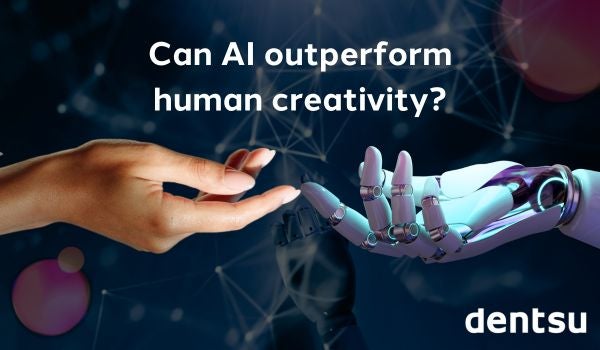
While ChatGPT is a new technology, the debate of artificial intelligence versus human intelligence has been a longstanding one in the field of cognitive science. However, in today's world, with the exponential growth of technology and the increasing integration of AI into our daily lives, the debate has taken on new dimensions and become more pressing. With the emergence of AI-powered systems that can perform complex tasks once thought to be the unique domain of human intelligence, many are grappling with questions about the future of work, ethics, and the role of AI in creativity.
Generative AI's contest with human creativity has taken on a new dimension with the recent challenge issued by Gavin Dudley, editor of Tech, the biggest technology magazine in the country, part of the TFG Media stable and produced by DENTSU CREATIVE. The challenge? To pit the generative AI tools ChatGPT and DALL-E 2 against seasoned journalists to see who can write the best articles for the May issue.
Further to this. Dudley and his DENTSU CREATIVE team have gone the extra mile to engage with their readers and get them involved in the process.
Although called out on the cover, the specific articles created by ChatGPT in the May issue of Tech magazine are not identified for the reader. Instead, the reader must scan a QR code in the magazine to find out what was created by machine, with an explanation of how we did it.
But beyond the challenge lies a deeper issue. "With content agencies like us now integrating AI technology into their day-to-day content creation, the line between original thought and automated generation of content is becoming increasingly blurred" said Justine Drake, Executive Content Director, DENTSU CREATIVE.
"Sure, the original idea and concept for an article must still be articulated in a way that provides instructions on tone, length, and audience, but the key information that is to be covered is entered into the AI program, which then pulls together words, phrases, and ideas from other publicly published works. The challenge, then, lies in the creativity and original thought process required to produce a truly engaging and thought-provoking article. This is where the limitations of AI become apparent. While it may have the ability to pull information, insights, and wording from other sources, it lacks the original thought and creativity that comes from the human mind", continued Drake.
Of course, while "AI vs humans" is a compelling narrative, it may be a bit reductive to think of it in purely adversarial terms. In addition to the creative work we now associate with AI, there is also a wealth of scientific and data-heavy applications this tool can be used for. Enormous strides have already been made in medical research, for example, using the technology's capacity for pattern recognition and near-limitless computational power. At the end of the day, a human touch is still required to initiate and interpret experiments – this is just a more advanced tool to work with.
The issue of plagiarism is also put to the test in this challenge. Are the words you are reading truly original thoughts, or are they simply rehashed and reworded from other sources? It's a question that readers will undoubtedly be asking themselves as they scan those QR codes.
So, who will come out on top in this AI versus IQ challenge? Which articles will be read more and engaged with more? Ultimately, it will be the words themselves that will determine the winner. Whether written by a journalist or prompted, directed, and interpreted by AI, the words will speak for themselves. And perhaps, in the end, the reader will be the ultimate judge of which is better – AI or IQ. And don't worry – all will be back to normal next month, with our geeky journos very humanly tapping away at their keyboards.
Internationally, DENTSU has already delivered sophisticated media projects using a range of text and graphical AI tools, and this expertise is now being shared widely throughout the group. DENTSU creatives around the world are now collaborating to create unique products for its clients while fast-tracking the development of the in-house AI skills to turn this unique opportunity into a significant business advantage.

